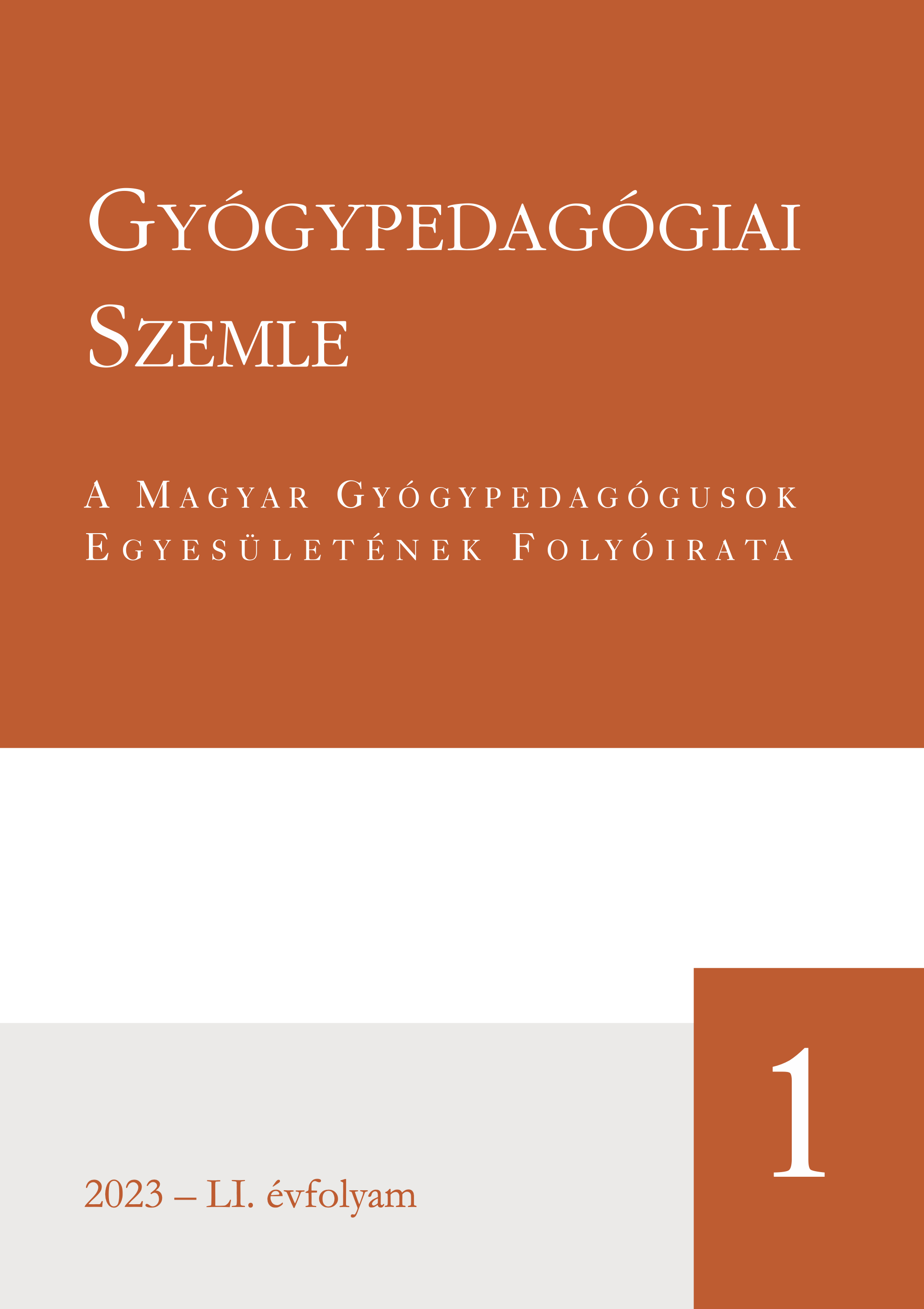Hallássérült kisgyermekek családközpontú korai intervenciójának hazai alakulása
DOI:
https://doi.org/10.52092/gyosze.2023.1.1Kulcsszavak:
korai intervenció, naturális auditív-verbális terápia, szülői bevonódás, nyelvelsajátítást támogató stratégiákAbsztrakt
Absztrakt
Háttér és célok: A hallássérült gyermekek korai intervenciója a több évtizedes múlttal rendelkező, evidenciaalapú, naturális auditív-verbális terápia mentén történik. Ennek kialakulását és gyakorlati megvalósulását a tudomány és technika fejlődése tette lehetővé.
Módszer: Ez a narratív áttekintés a hallássérült gyermekek korai intervenciója kapcsán kíván egy képet adni, hogy milyen fejlődési út vezetett a jelenlegi szakmai elvek, konszenzusok kialakulásához.
Következtetések: Kutatások bizonyították, hogy a hallássérült gyermekek nyelvi fejlődése szignifikáns összefüggésben áll a szülők terápiába való bevonódásával, aktív szerepvállalásával, valamint az idői tényezővel, a hallássérülés minél korábbi felismerésével (Moeller, 2000; Sharma et al., 2002). A hallássérült gyermekek heterogén csoportot alkotnak. Azonban mindannyiuk számára elérhető az egyéni igényeket figyelembe vevő terápia, optimális halláskorrekció, mely által új perspektívák nyíltak az élet számos területén.
Kulcsszavak: korai intervenció, naturális auditív-verbális terápia, szülői bevonódás, nyelvelsajátítást támogató stratégiák

